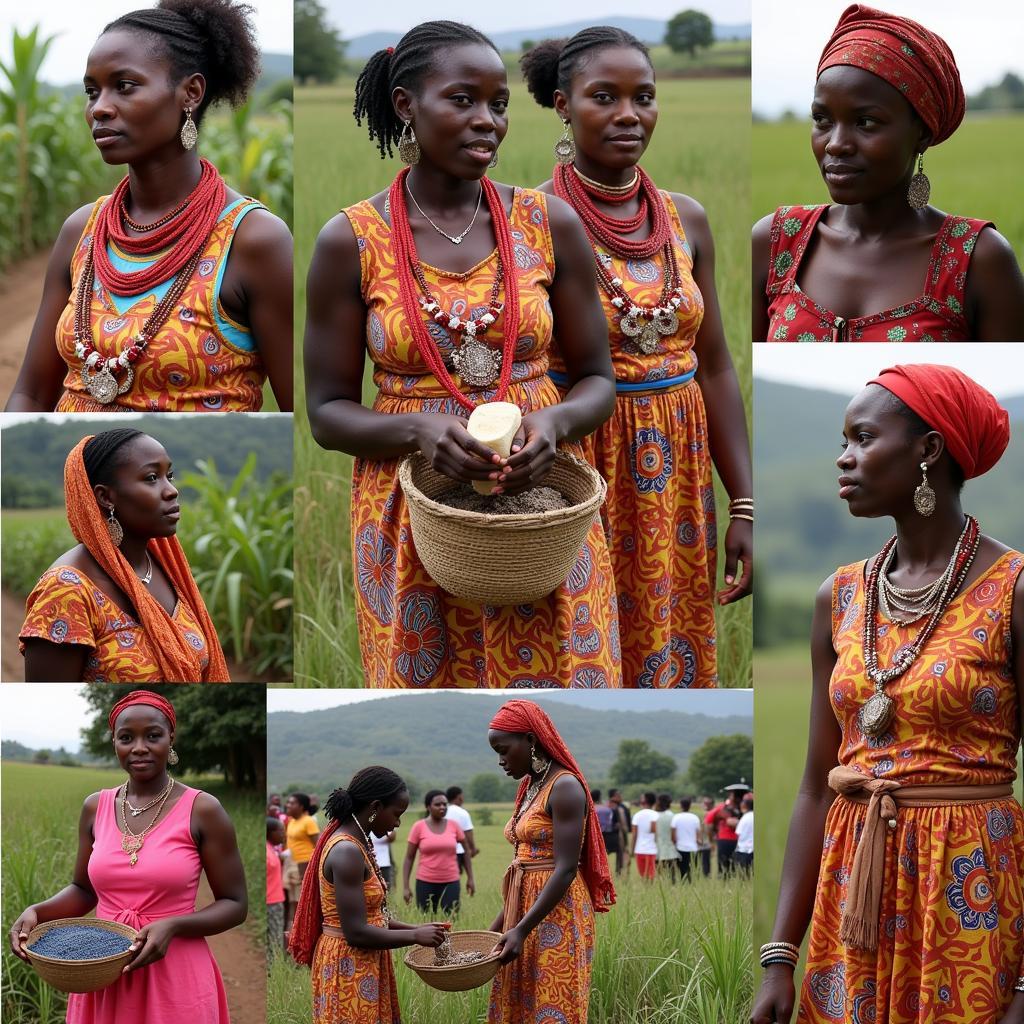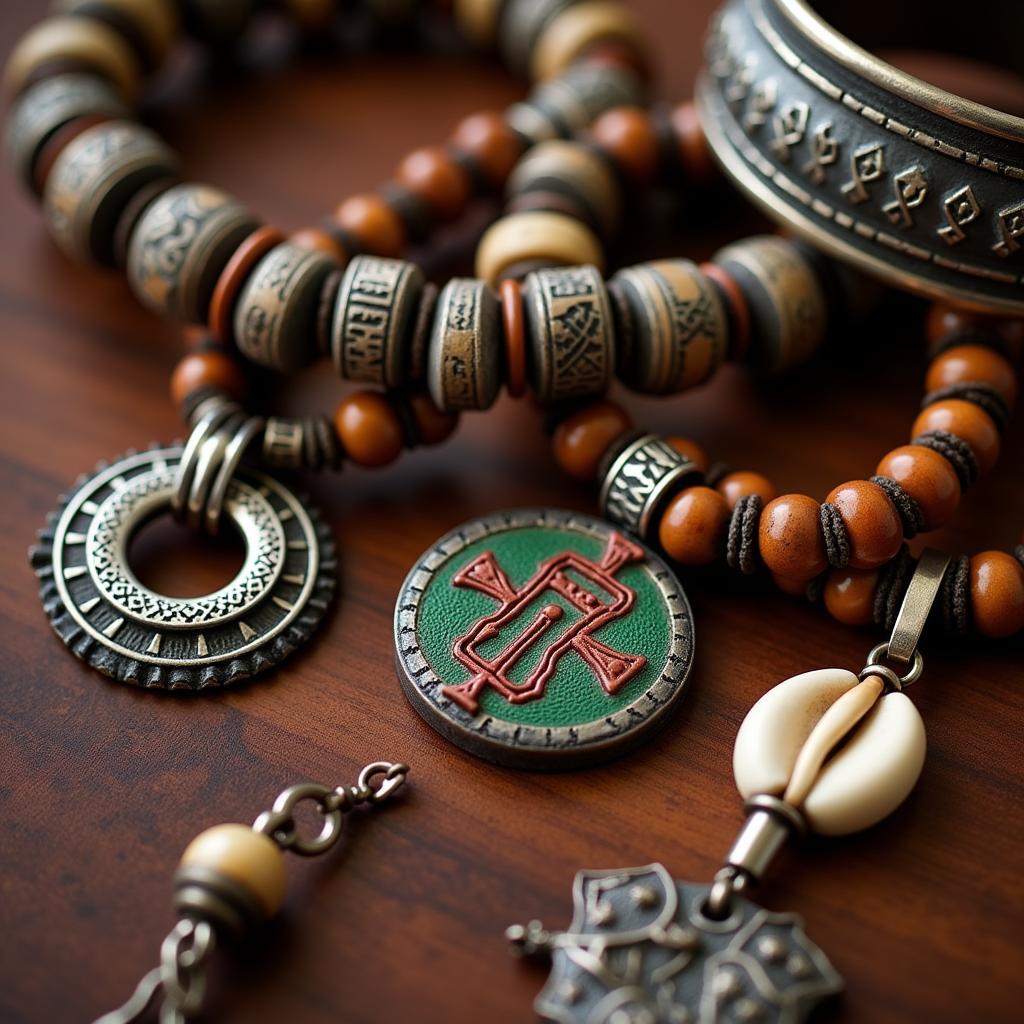The Growing Influence of African Concrete Products
Concrete, a seemingly ubiquitous material, finds a unique expression in the heart of Africa. While not typically associated with the vibrant tapestry of African culture, concrete products are steadily changing the landscape and lives of its people. This shift is driven by a potent combination of practicality, affordability, and a growing awareness of sustainable building solutions.
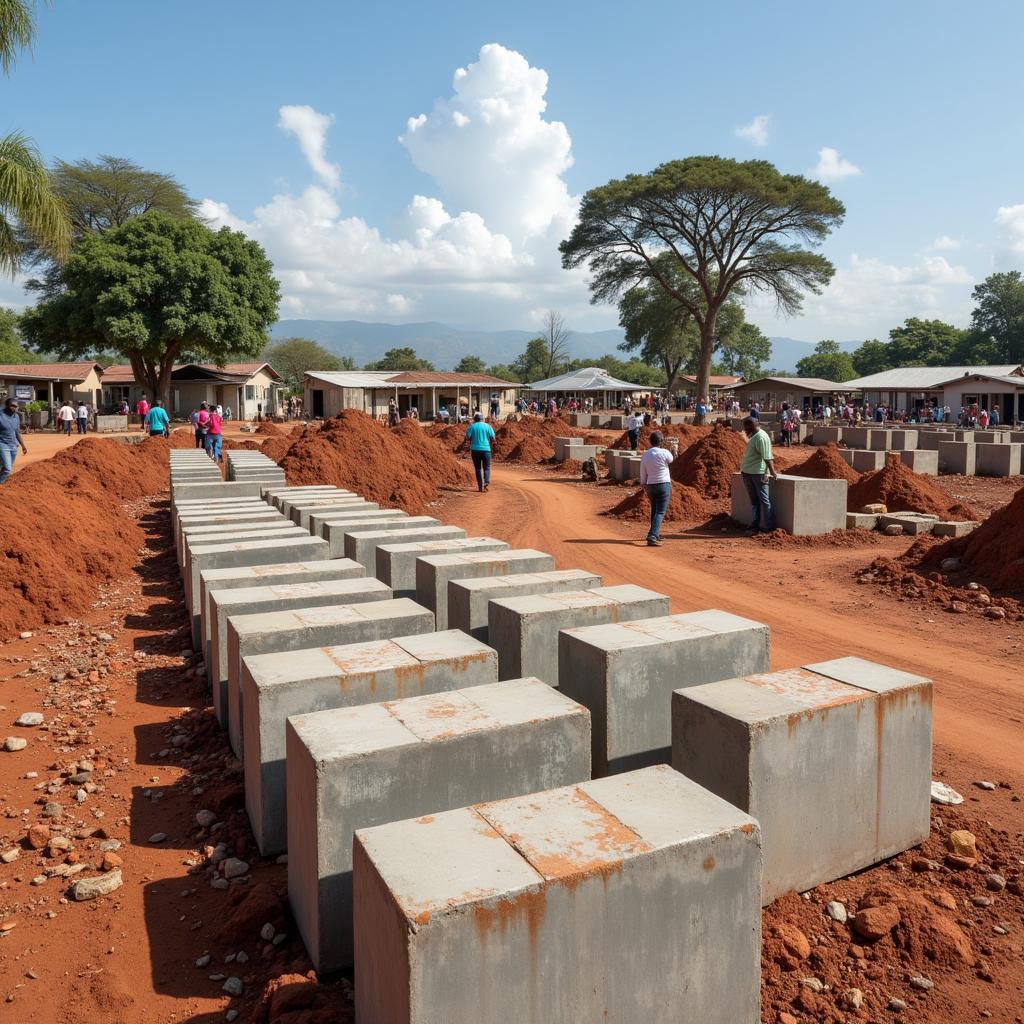 Stacks of concrete blocks at an African construction site
Stacks of concrete blocks at an African construction site
Shaping Modern Africa: The Rise of Concrete
Across Africa’s diverse nations, concrete products are witnessing a surge in demand, fueled by rapid urbanization and infrastructure development. From bustling cities to remote villages, concrete is the material of choice for building homes, schools, hospitals, and vital infrastructure. Its strength, durability, and resistance to harsh weather conditions make it ideally suited to the African context.
One key factor contributing to the popularity of African Concrete Products is their affordability. Locally sourced materials, such as sand, gravel, and cement, keep production costs low, making concrete a viable option for both large-scale projects and individual home builders. This accessibility is crucial in a continent grappling with economic challenges, where finding cost-effective building solutions is paramount.
Beyond Functionality: Exploring Aesthetic Possibilities
While functionality remains a primary driver, African concrete products are increasingly embracing aesthetics. Innovative manufacturers are experimenting with pigments, textures, and molds to create visually appealing blocks, pavers, and architectural elements. This shift reflects a growing desire to merge practicality with design, adding a touch of beauty and individuality to concrete structures.
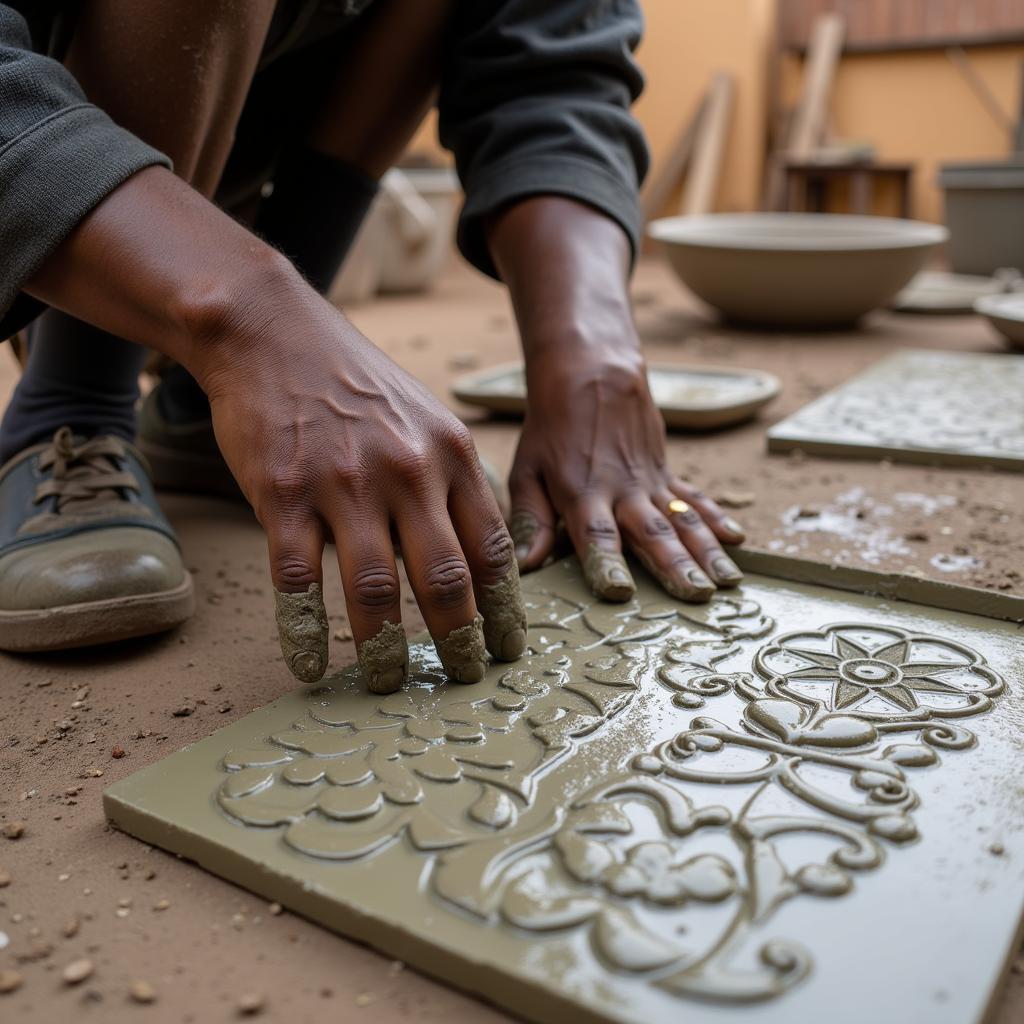 An African artisan meticulously crafting decorative concrete tiles
An African artisan meticulously crafting decorative concrete tiles
Concrete: A Canvas for African Creativity
The use of concrete in African architecture is not entirely new. Ancient civilizations, like the Egyptians and Nubians, utilized concrete-like materials in their monumental structures. Today, this legacy finds new life as modern architects draw inspiration from traditional designs, incorporating intricate patterns and motifs into concrete facades and elements. This fusion of old and new showcases the versatility of concrete as a material that can both preserve cultural heritage and embrace contemporary aesthetics.
Building a Sustainable Future: The Eco-Friendly Potential of Concrete
Beyond its structural and aesthetic benefits, concrete holds significant potential for sustainable development in Africa. Locally produced concrete products reduce reliance on imported materials, minimizing transportation costs and environmental impact. Furthermore, advancements in concrete technology are paving the way for eco-friendlier options.
“The use of recycled aggregates and supplementary cementitious materials in concrete production is gaining traction in Africa,” explains Dr. Abena Osei, a civil engineer specializing in sustainable construction materials. “These practices not only reduce the carbon footprint of concrete but also address the growing problem of waste management in urban areas.”
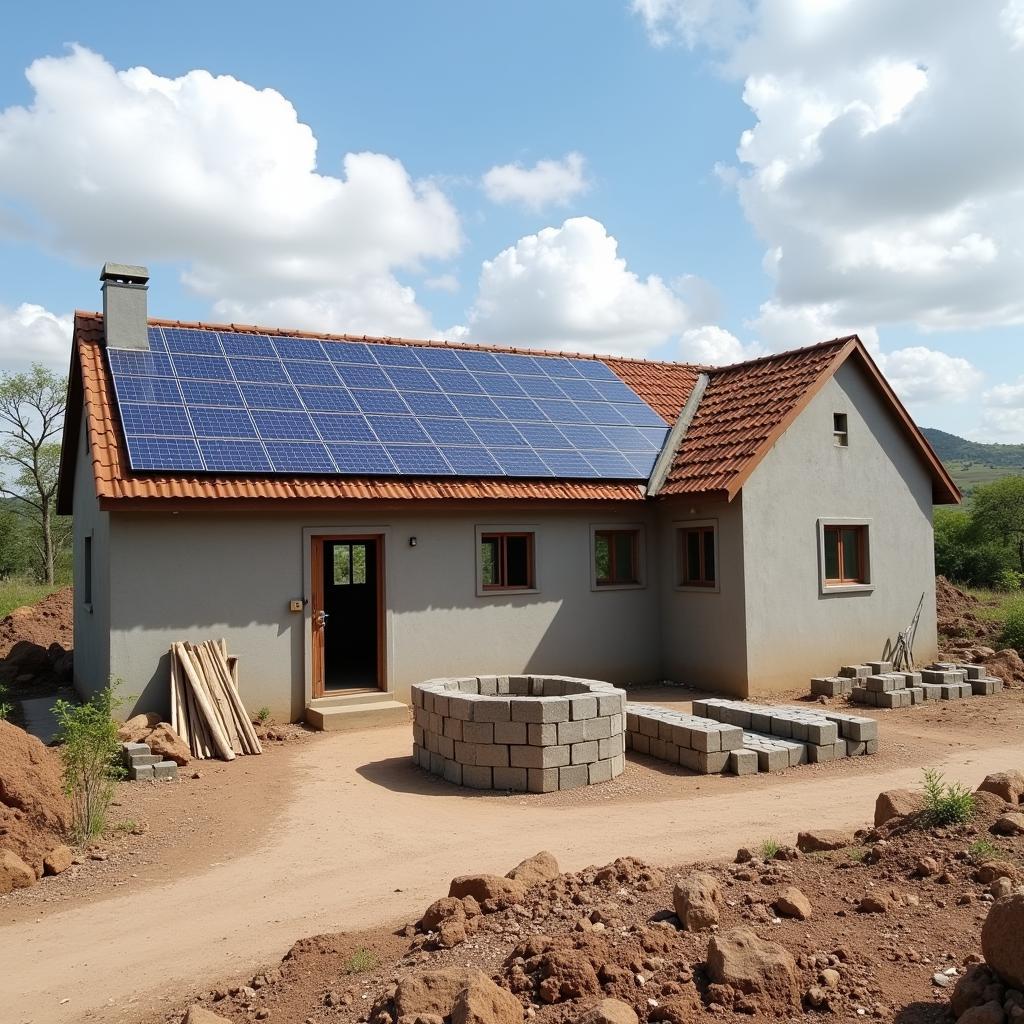 A solar-powered concrete block manufacturing plant in Africa
A solar-powered concrete block manufacturing plant in Africa
Empowering Communities Through Local Production
The rise of African concrete products goes beyond construction; it fosters local economies and empowers communities. Small-scale concrete manufacturing businesses are emerging across the continent, creating jobs and stimulating economic growth at the grassroots level. These businesses often utilize locally available resources and labor, ensuring that the benefits of this burgeoning industry are felt directly by the people.
The Future of African Concrete Products: Innovation and Growth
The African concrete products sector is poised for continued growth and innovation. As the continent continues its rapid urbanization and development trajectory, the demand for affordable, durable, and sustainable building materials will only intensify. This demand presents a significant opportunity for African entrepreneurs and innovators to develop new technologies, enhance production processes, and establish themselves as leaders in the global concrete industry.
From its humble beginnings as a purely functional material, concrete has evolved into a symbol of Africa’s progress, resilience, and creative spirit. As the continent charts its course towards a brighter future, African concrete products will undoubtedly play a pivotal role in building a more sustainable, prosperous, and beautiful Africa.
FAQ
What are the advantages of using concrete products in African construction?
Concrete products offer numerous advantages in the African context, including durability, affordability, resistance to harsh weather, and the ability to utilize locally sourced materials.
How are African concrete products becoming more sustainable?
The industry is increasingly adopting sustainable practices such as using recycled aggregates, incorporating supplementary cementitious materials, and implementing energy-efficient production methods.
What is the impact of the concrete industry on local communities?
The growth of small-scale concrete manufacturing businesses creates jobs, stimulates economic growth, and empowers local communities across Africa.
Are there examples of aesthetically pleasing concrete products in Africa?
Yes, manufacturers are incorporating pigments, textures, and molds to create visually appealing concrete blocks, pavers, and architectural elements, often drawing inspiration from traditional African designs.
What does the future hold for African concrete products?
The sector is poised for continued growth and innovation, driven by rapid urbanization, infrastructure development, and a growing focus on sustainable building solutions.
Need help?
Contact us at Phone Number: +255768904061, Email: kaka.mag@gmail.com or visit us at Mbarali DC Mawindi, Kangaga, Tanzania. We have a 24/7 customer service team.

